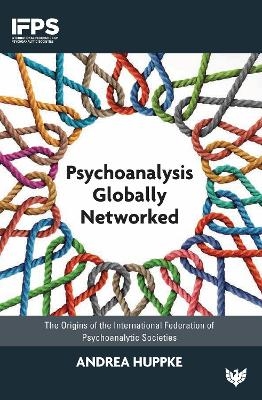
Psychoanalysis Globally Networked
Phoenix Publishing House (Verlag)
978-1-80013-226-9 (ISBN)
This is the first book in the new International Federation of Psychoanalytic Societies Series.
Since the very beginning with Sigmund Freud, the psychoanalytic movement has been in the sway of strong group dynamics. There have been hierarchies, tensions between subgroups, splits and exclusions. On July 30, 1962, in Amsterdam, the representatives of psychoanalytic societies in Germany (Werner Schwidder and Franz Heigl), Mexico (Erich Fromm and Jorge Silva Garcia), and Austria (Igor Caruso and Raoul Schindler) signed the foundation agreement of the International Federation of Psychoanalytic Societies (IFPS). One year later, they were joined by the New York William Alanson White Institute (Gerard Chrzanowsk) and more societies soon followed. The IFPS welcomed psychoanalysts less suited to the more orthodox International Psychoanalytical Association (IPA). Member societies and institutes of the IFPS are regarded as autonomous entities and, with its concept and structure, the IFPS refrains from being an authority or an object of identification for its members.
At the start, not belonging to the IPA was the strongest link between the IFPS founders, but they also shared similar views on doctrinal content and therapeutic approach. Many, for example, did not find the libido theory, the Oedipus complex, the death drive theory, and the metapsychology of Freudian teaching as significant as most IPA psychoanalysts did. Instead, they placed more emphasis on interdisciplinarity with the humanities, social sciences and biology, on the interpersonal aspect of the relationship between psychoanalysts and patients, on object relations, on the social context of the ailing subject, and on testing new methods for different types of illnesses. Political and social references were also important to many. The member societies and institutes of the IFPS do have to fulfil formal admission criteria, but, once they are admitted, they are regarded as autonomous entities over which the IFPS exerts no influence, including the requirements of training programmes. This is one of the formal differences with the IPA which organises the training programme for their members. With its concept and structure, the IFPS to this day refrains from being an authority or an object of identification for its members.
This volume documents the foundation and development of the IFPS throughout its first twenty years, revealing a rich source of psychoanalytic history.
Andrea Huppke is psychoanalyst, group analyst, supervisor, and training analyst in Berlin, Germany. She has written several publications in the field of the history of psychoanalysis, most of them published in Luzifer-Amor: Journal for the History of Psychoanalysis. She wrote her dissertation about the first twenty years of the IFPS; it was published in German in 2021.
Contents
Acknowledgements
About the author
Preface
by Marco Conci, Christer Sjödin, and Grigoris Maniadakis
Introduction
Part I
The early years
1. The prehistory of the International Federation of Psychoanalytic Societies (IFPS)
2. The origins and expansion of the IFPS
3. Forums and workshops in the 1960s and 1970s
4. Developments through the 1970s and 1980s
Part II
Psychoanalytic dissidents
5. Liberal, orthodox, and dissident psychoanalysis
6. Conceptualising the IFPS
Conclusion
References
Appendix
Index
| Erscheinungsdatum | 10.11.2023 |
|---|---|
| Reihe/Serie | International Federation of Psychoanalytic Societies |
| Sprache | englisch |
| Maße | 152 x 229 mm |
| Gewicht | 436 g |
| Themenwelt | Geschichte ► Teilgebiete der Geschichte ► Wirtschaftsgeschichte |
| Geisteswissenschaften ► Psychologie ► Psychoanalyse / Tiefenpsychologie | |
| Sozialwissenschaften ► Politik / Verwaltung ► Europäische / Internationale Politik | |
| ISBN-10 | 1-80013-226-3 / 1800132263 |
| ISBN-13 | 978-1-80013-226-9 / 9781800132269 |
| Zustand | Neuware |
| Informationen gemäß Produktsicherheitsverordnung (GPSR) | |
| Haben Sie eine Frage zum Produkt? |
aus dem Bereich


